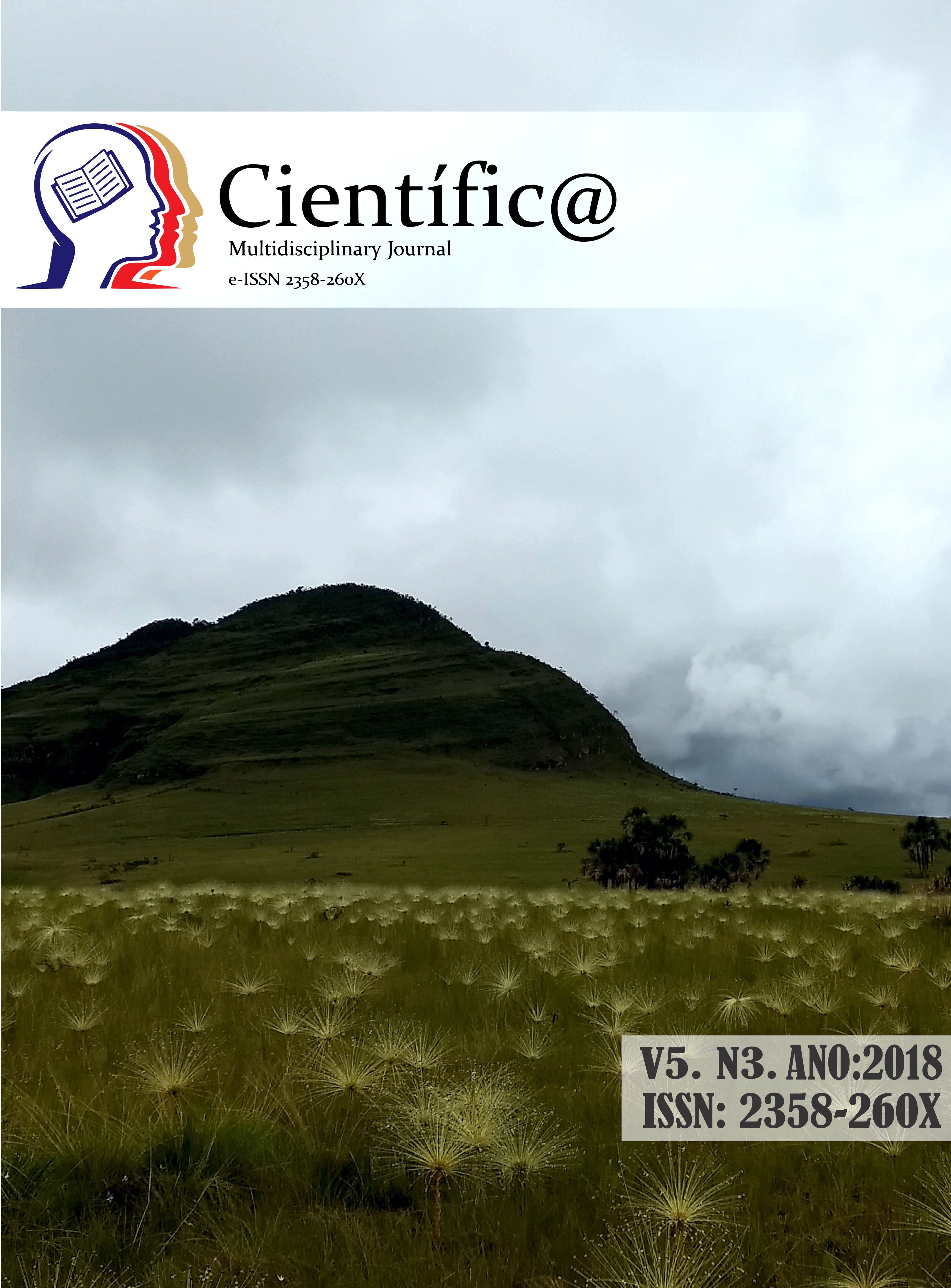PRODUTOS ALTERNATIVOS NO CONTROLE DE Colletotrichum spp. ISOLADOS DE MANGA E BANANA
DOI:
https://doi.org/10.29247/2358-260X.2018v5i3.p104-112Resumo
A antracnose causada pelo fungo Colletotrichum spp. ocorre tanto na cultura da manga quanto na cultura da banana, em campo e em pós colheita. A busca pela incorporação de uma nova consciência ecológica vem trazendo conceitos de sustentabilidade para o meio agrícola. Nesse sentido, objetivou-se com este trabalho avaliar o efeito de produtos alternativos em diferentes concentrações sobre o desenvolvimento de Colletotrichum spp. in vitro. Os isolados foram obtidos de frutos com sintomas de antracnose. A atividade antifúngica das concentrações dos tratamentos foi avaliada através da medição em centímetros do crescimento micelial do patógeno. Utilizaram-se cinco concentrações (1, 2, 4, 8, e 16%) dos tratamentos com essenciais de eucalipto, copaíba , coco, cravo-da-Índia e alecrim dos extratos de citronela canela e cravo-da-Índia , do hidrolato de cravo-da-Índia e do composto majoritário do óleo de cravo-da-Índia Eugenol em meio de cultura BDA. O ensaio foi conduzido em dois experimentos com delineamento inteiramente casualizado, em esquema fatorial 10x5 e 7x5 para Colletotrichum musae e Colletotrichum gloeosporioides respectivamente em cada produto utilizado/concentração foram utilizadas quatro repetições. os tratamentos eugenol e óleo de alecrim apresentaram os melhores resultados quanto a inibição do crescimento do fungo em todas concentrações utilizadas. Destaca-se o tratamento com óleo de eucalipto e de cravo que também inibiram totalmente o crescimento de C. musae a partir da concentração 2%. Na avaliação do crescimento de C. gloeosporioides, dentre os sete tratamentos avaliados, apenas o eugenol apresentou potencial total de inibição de crescimento independente da concentração utilizada, seguido do óleo de copaíba que apresentou redução do crescimento em todas as concentrações quando comparado aos demais tratamentos.
Downloads
Publicado
Como Citar
Edição
Seção
Licença
Esta revista oferece acesso livre imediato ao seu conteúdo, seguindo o princípio de que disponibilizar gratuitamente o conhecimento científico ao público proporciona maior democratização mundial do conhecimento.
A partir da publicação realizada na revista os autores possuem copyright e direitos de publicação de seus artigos sem restrições.
A Revista Científic@ - Multidisciplinary Journal segue os preceitos legais da licença Creative Commons - Atribuição-NãoComercial 4.0 Internacional. 

